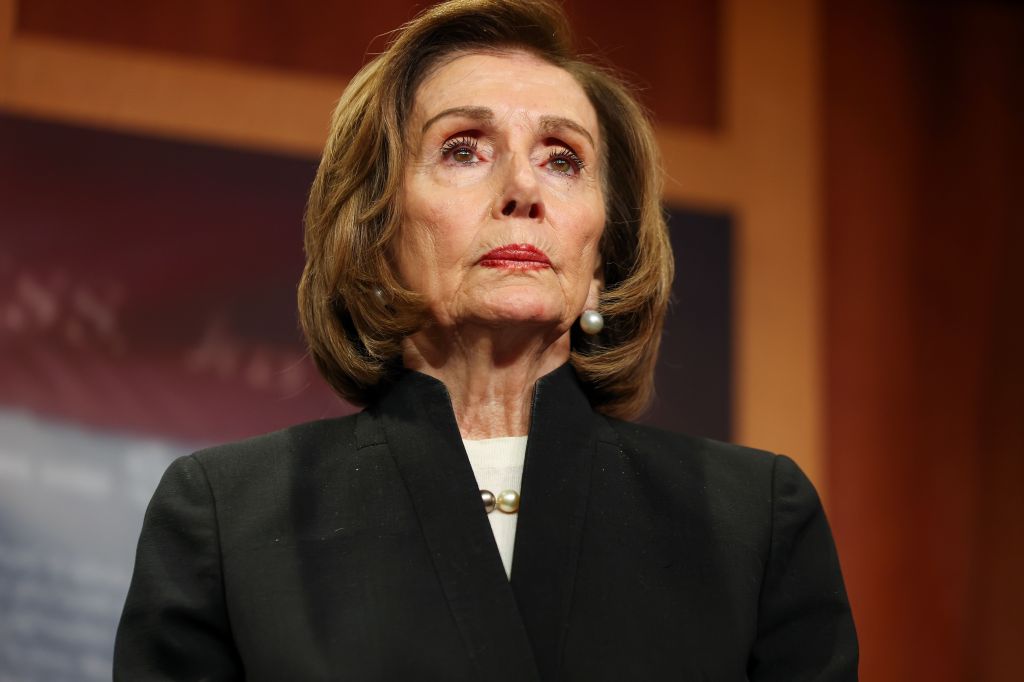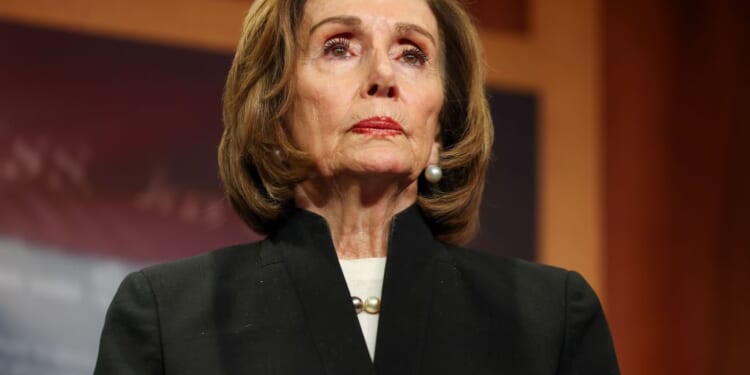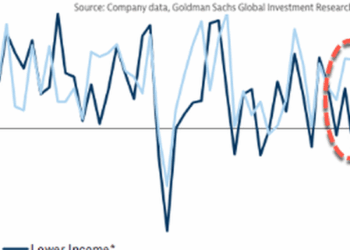
Although members of Congress are currently prohibited from trading on nonpublic information courtesy of the 2012 STOCK Act, their routine access to market-moving information in closed-door hearings—and high-profile examples of exceedingly well-timed trades—has kept speculation buzzing.
In 2022, for example, then-Speaker Nancy Pelosi’s husband Paul—who owns an investment firm—purchased more than $1 million in Nvidia call options weeks before the House voted on legislation providing massive subsidies to chip manufacturers. (After criticism, he sold them for a loss days before the vote). He sold at least $500,000 in Visa stock in July 2024, a few months before the Justice Department filed an antitrust lawsuit against the company. The retiring lawmaker’s representatives have repeatedly denied any wrongdoing, but her husband’s trading record has been so lucrative—up 65 percent in 2023, according to a report from financial analytics platform Unusual Whales, compared to the S&P 500’s 23 percent—that there’s an ETF with the ticker “NANC” that tracks stocks bought and sold by Democratic members of Congress.
In theory, the implied wrongdoing—Nancy Pelosi feeding insider information to her husband, who then trades on it—is already illegal under the STOCK Act. But even if members haven’t explicitly broken the law, advocates for additional legislation still believe there are reasons to prohibit lawmakers from having a personal financial interest in the success of individual companies.
“The real point that comes out is that it raises so many questions as to what’s going on,” Kedric Payne, who leads the ethics program at the Campaign Legal Center, told TMD. “It’s a simple fact that you have questions as to whether it’s insider trading, or if they just have so much information that they know—that technically may be public, but not widely known publicly—that allows them to make these trades.”
Concerns over members of Congress unfairly benefiting from stock trades go back more than 150 years. In the 1860s and 1870s, fraudsters set up a phony construction company, Crédit Mobilier, ostensibly to build the Union Pacific Railroad, and conned the federal government out of $44 million. Those who ran the scheme bribed members of Congress with low-priced company stock in exchange for a lack of oversight.
By the 2010s, the primary concern was insider trading—which was not explicitly banned—and in 2011, CBS News’ 60 Minutes ran an influential segment on congressional stock trading. The resulting backlash played a significant factor in the passage of the Stop Trading on Congressional Knowledge Act a year later, which barred the practice and required members to disclose any purchases of securities totaling more than $1,000 within 30 to 45 days.
But many advocates of a blanket ban on individual stock ownership argue that the law is not strong enough to deter insider trading. Members often fail to disclose their trades on time, and no member of Congress has ever been prosecuted under the STOCK Act. The bill also did nothing to change how owning individual stocks could influence lawmakers’ policy decisions.
That said, although there are plenty of high-profile examples of savvy moves to point to, a broader look at the performance of congressional investing is more mixed. Bruce Sacerdote, an economics professor at Dartmouth College, has conducted several studies comparing trades by members of Congress to the overall market and told TMD that there is “definitely not” a broad phenomenon of lawmakers outperforming the market and beating out other traders. “If there was any debate over what the average returns are, that’s been settled,” Sacerdote said. “They’re slightly negative, relative to the market.”
One study Sacerdote performed analyzed publicly disclosed trades from the beginning of 2012 to the end of 2020, and found that even the most successful investors in Congress performed no better than picking stocks by random selection.
Another study focused specifically on lawmakers’ trades in 2020, the same year that the Department of Justice probed several stock sales made by some senators in late January or early February as they received early briefings on the COVID-19 pandemic. The department later chose not to bring charges. But even in 2020, stocks purchased by members of both the House and Senate still generally underperformed a size-and-industry-adjusted benchmark, with senators—who theoretically would have more access and influence—underperforming the benchmark by 3.1 percent after six months, according to Sacerdote’s research.
“A lot of the things where there’s pretty strong allegations that say senators or congresspeople sold ahead of something bad happening—like COVID becoming a thing—even those trades end up not working out,” Sacerdote told TMD.
Even before the STOCK Act, research was mixed on whether members of Congress showed a palpable advantage. One survey of stock trades between 1993 and 1998 found that senators’ purchases beat the market by 0.85 percent per month, or more than 10 percent per year. But another study that looked at trades from 2004 to 2008 found that an average member of Congress underperformed a passive index fund by 2 to 3 percent per year.
In the case of the Pelosis, whenever they disclose buying or selling a stock, tens of thousands of retail traders who follow accounts like @pelositracker—or use copy-trading apps built around it—automatically pile into the same trades, convinced she has insider knowledge. That itself may drive the relevant share prices up or down.
Nevertheless, there is still broad bipartisan support for banning members of Congress from trading individual stocks, both in Congress and among the American public. A 2023 poll from the University of Maryland found that 86 percent of Americans support a ban on congressional stock trading. That popularity is probably one reason why, though no such ban has been enacted, few members of Congress have publicly opposed it. Even Pelosi has stated support for various proposals.
Republican Sen. Tommy Tuberville—who will retire from Congress after his current term ends to run for governor of Alabama—is one of the few members who have consistently opposed a ban. “I’ve never been for that,” he told TMD, “because it’s a free country.”
















